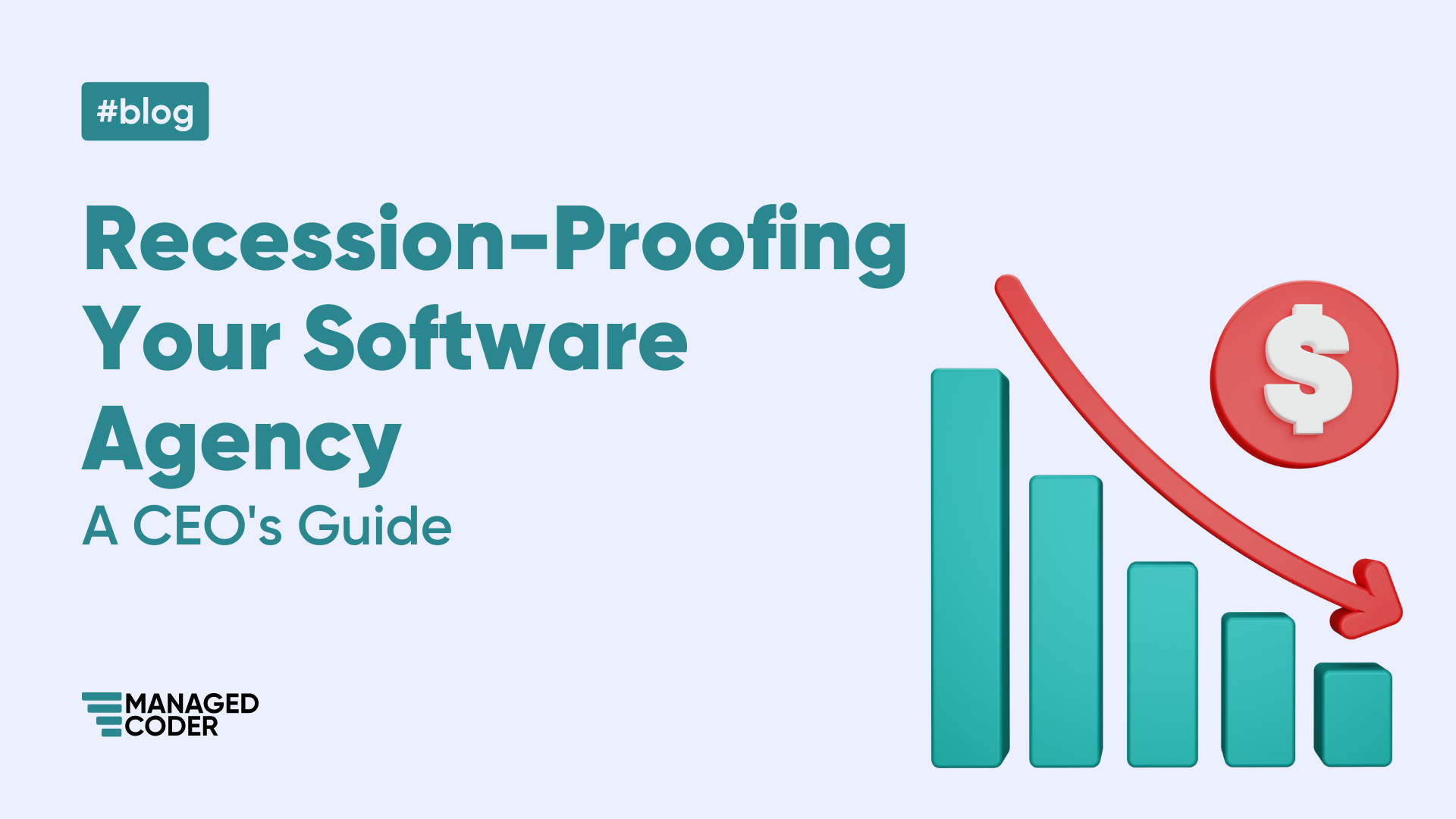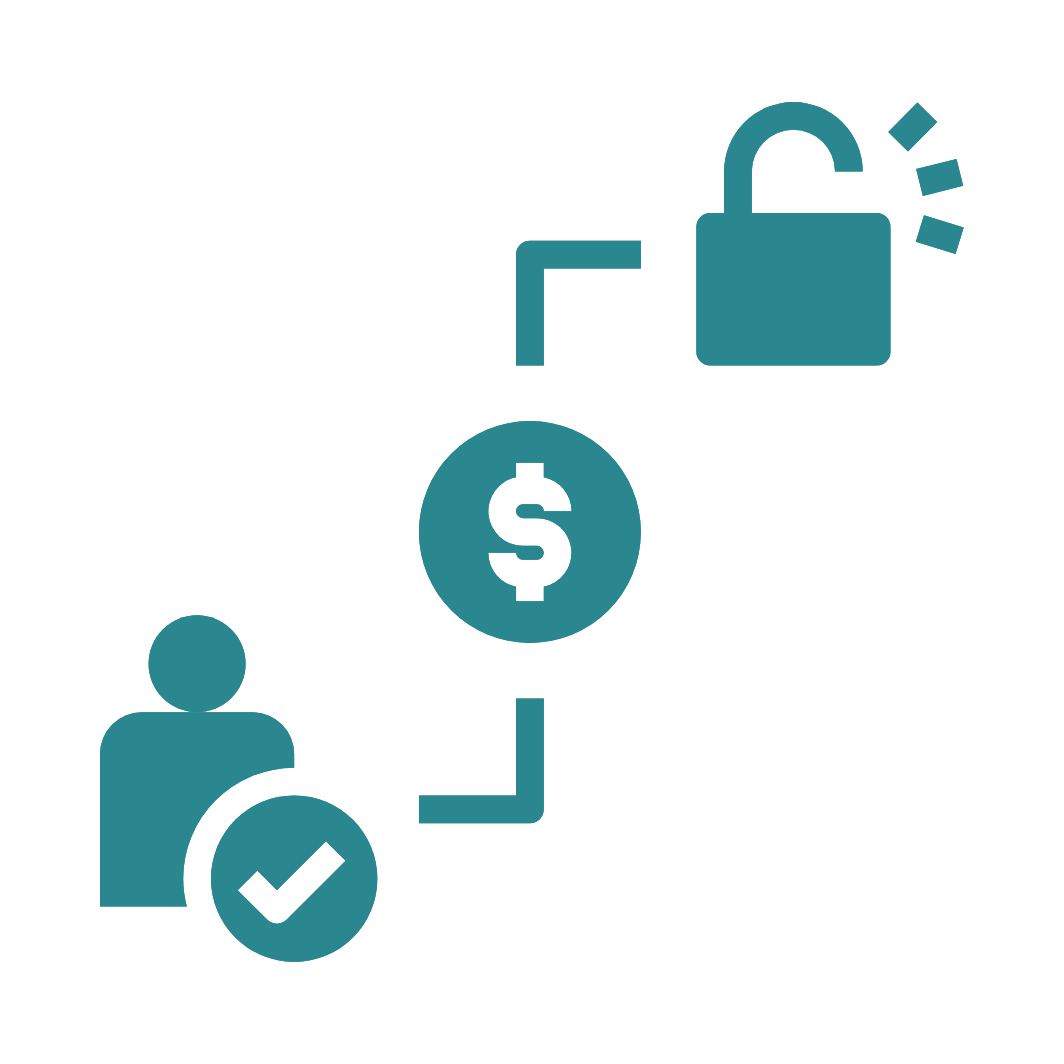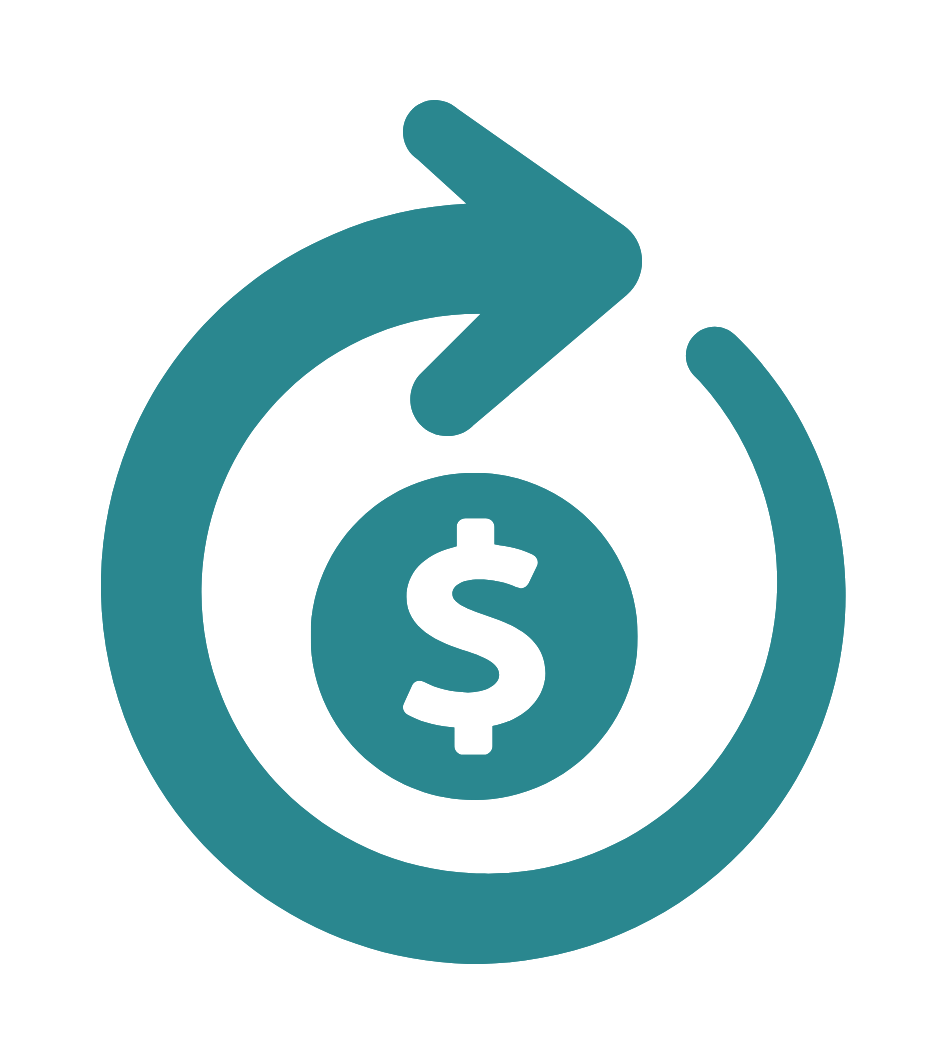
Growth during a recession? It may seem unbelievable, but hear us out! It is true that no one can avoid a recession, and when the economy takes a turn for the worse, many businesses suffer. Software companies are particularly vulnerable during an economic downturn, as they often rely on discretionary spending from their clients.
The odds may be stacked against you; however, what we can do is weather the storm, be prepared, and even grow from it. There are steps that CEOs can take to safeguard their companies from the worst of the downturn and even mindfully widen their reach.
In this blog post, we’ll share insights from CEOs on “How to Recession-Proof Your Software Agency” so you can stop bracing yourself for the worst.
1. Narrow your focus and concentrate your efforts
When navigating your software company during times of economic uncertainty, it’s important to have a clear focus and to persevere in the pursuit of your goals, especially during a recession.
- It’s essential to be adaptable and reassess your work and life strategies as needed to stay competitive and achieve your objectives.
- The concept of grit, as discussed in the book “Grit” by Angela Duckworth, is also relevant in this context.
- Grit refers to the ability to sustain effort and maintain focus over the long term, and it’s a key factor in achieving success.
So, it’s not just about working hard, but also about working smart and staying committed to your goals, even when things get tough.
2. Invest in marketing tactics that expand marketing shares
A well-executed marketing campaign can help you attract new clients and stand out from the competition. Just be sure to focus on ROI-driven activities that will give you the biggest bang for your buck.
- For instance, offering cost-saving products or services can help recession-proof your software agency. You could focus on helping clients reduce their AWS bills, demonstrating your value as a cost-saving partner.
- In times of recession, it’s important to not only focus on cost-cutting measures but also to invest in strategies that will help you gain market share. This could involve working on innovative products or services that meet the needs of clients looking for cost-effective solutions.
3. Disrupt through the power of invention
History suggests that companies that invest in innovation during crises outperform their peers during the recovery. Crises are like adrenaline for innovation, as they cause barriers that took years to overcome to go away in a matter of days. ‘Disrupting through invention’ works in this way. The tried and tested ways of how processes are followed are replaced with new ways to accomplish things. As a result, new, innovative products or services are introduced, disrupt the market, and give your agency a competitive advantage.
- Consider investing in innovative ideas and technologies that will set your agency apart from the competition and help you tap into new markets.
- Focus on the value of the potential opportunity and the level of satisfaction it brings when compared to existing available alternatives.
- Also pay attention to the number of target customers, how frequently the innovative idea will be used, and how willing the audience is to pay for current solutions.
Knowing this helps generate the most value and strategize new business and economic models.
4. Train your junior software engineers for an emergency
Having a backup plan in place and cultivating a pool of junior engineers who are ready to step up in case of an emergency can help your software agency weather a recession.
- It’s important to engage and train your junior resources so that they are prepared to take on projects and tasks when needed.
- By investing in junior talent during a downturn, you’ll be in a stronger position to continue growing and expanding your business once the recession has passed.
- Remember, the cost of junior resources is often lower than more experienced hires, making them an economical choice for building a resilient team.
5. Maximize opportunities with existing clients
During tough economic times, it’s more important than ever to nurture relationships with your existing clients. They’re likely feeling the pinch too, so make sure you’re doing everything you can to support them and add value. If you can keep your existing clients happy, they’ll be less likely to look for alternative providers when times get tough.
- Also, review your Profit and Loss statement (P&L) and detect any unnecessary costs that can be cut.
- During slow periods, consider finding projects that can help cover costs and keep your team members busy.
- Be transparent with clients about the fact that these are special “recession prices,” and make it clear that these rates are temporary and will not be available once the economic downturn has passed.
6. Provide more free consultations
They say if you’re good at something, never do it for free but during the recession, this trick can prove useful. Here’s why:
- Offering free consultations can be an effective way to attract new clients and demonstrate your expertise during a recession.
- It is going to require some time and effort but free consultations can provide an opportunity to present your agency as a source of valuable ideas and solutions.
- Keep in mind that while some clients may simply be looking for a quick consultation, others may be seeking a new agency after a breakup with their current one.
- By offering a free consultation, you can show your audience that you can position your agency as a top choice for businesses that are looking for innovative solutions.
7. Develop a crisis management plan
You can’t neglect the ‘what-if’ scenarios. ‘What if the sector you offer your services to is hit the worst?”, “What do you do if you suffer an instant and major drop in sales?”, or “What happens if your employees’ personal lives are impacted owing to the recession?’
- Put together a crisis management plan that addresses these specific risks and more you may face during a crisis.
- Analyze the agency’s existing financial plan, develop a budget to accommodate spending, and cut costs.
- Build up cash reserves while you continue to look for ways to improve your financial situation, and review and update contracts.
- Diversify the client base so that you do not rely on any specific industry or sector.
- Make sure to always communicate with the team and be proactive in finding new chances to increase revenue.
8. Adjust your pricing strategy
Hourly billing can be challenging for software agencies to follow during a recession, as it does not offer the stability of a monthly retainer nor the predictability of fixed bills or outcomes for clients.
- What helps is thinking of alternate billing approaches such as a fixed monthly retainer that offers access to specific services with the option for clients to add on additional services as required.
- Another effective alternative is results-oriented billing where clients pay for confirmed results in areas such as conversion rates, rankings, or leads.
- This pay-for-performance model can be worthwhile for both the agency and the client, especially if the agency is confident in its ability to deliver results within a set budget.
9. Rid yourself of your worst customers
Although it may seem contradictory, sometimes cutting certain clients during a recession can help a software agency increase its profits.
- Sometimes, agencies have clients that consume a disproportionate amount of resources and are not profitable.
- These clients can be a distraction and drain on resources, particularly during a recession when the focus should be on retaining top clients and acquiring new ones.
- To determine which clients to potentially cut, it is important to calculate the overhead rate for each client and the total profitability for each client.
- This helps recognize any clients that may require too much time and effort compared to their profitability and allow the agency to make informed decisions about its client base.
10. Build up your cash reserves
When times are tough, it’s crucial to have a cushion of cash to fall back on. That way, if you do lose some clients or have to tighten your belt, you’ll still be able to keep your business afloat.
- Aim to have enough cash reserves to cover at least 3-6 months of operating expenses.
- Also, see where you can cut back — From renegotiating contracts with suppliers to downsizing your office space, there are plenty of ways to save money during a recession.
However, don’t be too aggressive in your approach.
Case in point, Hewlett-Packard!
During the 2000 recession, Hewlett-Packard made several ambitious changes in an attempt to improve the company’s performance, even though its sales and profits were declining.
The then CEO ‘Carly Fiorina’ declared, “In blackjack, you double down when you have an increased probability of winning. We’re going to double down.” So began the restructuring of the company by investing in branding, expanding technology, making the largest acquisition in its history by buying Compaq for $25 billion, and increasing R&D expenditures by 9%.
However, these initiatives stretched the organization’s resources and spread top management’s attention too thin. As a result, when the recession ended, the company struggled to match the profitability of its competitors, IBM and Dell. By 2004, Hewlett-Packard’s earnings as a percentage of sales had fallen below those of IBM and Dell.










